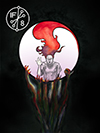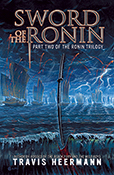A guest post by Shelley Reddy.
Two aliens walked into a library, and approached the front desk. “Hewwo, Wibrary Wand. Take us to your Weeder.”
I love that libraries are offering new ways for people to encounter stories and content. The library district where I work offers four online libraries, free music downloads, video streaming, language learning programs, virtual magazines, and over 300 free online classes –including courses on writing and publishing. Furthermore, the branches host workshops, e-publication seminars, author visits, as well as other programs. Those are a lot of opportunities for writers to improve their skills or connect with readers.
As a book lover and writer myself, I feel supremely lucky to be in such an environment. However, I’ve found that there are two great challenges to working in a public library.
- I will never read all the stories that are out there –nor even all the great stories.
- Libraries do not have enough room on the shelves or in the budgets for all the material which is being released into the world.
While the first is frustrating fact of life, the second creates a fundamental problem for libraries and their staff.
Like any reader, library staffs love stories, engaging characters, and the way writers spin worlds from varying combinations of a mere twenty six letters. We firmly believe that there is a book for every reader, and a reader for every book. The archivist in us treasures the ability to preserve the stories and match their authors with readers. However, when the books keep coming in and circulation slumps, the books sit, waiting like the residents of the Island of Misfit Toys.
Eight months ago, we had this problem in our large-print section. The books – built up over years of healthy budgets- were so numerous, and packed so tightly together, that it was nearly impossible to pull a title off the shelf. Many popular items were on the lowest shelves, forcing our most elderly patrons to bend or kneel to find them. The shelves themselves were located in the darkest portion of the building –which hadn’t been a problem when half-empty shelving allowed sunlight to filter through. We didn’t have a way to showcase the amazing titles and authors in our collection. For our readers, the wonderful adventures they wanted to experience were lost –buried amongst the blurred, shadowed mass of text and color.
Something had to change. In library land, we call the process of choosing what not to keep “weeding”, and it is a battle for the soul as much as for inches of clear territory. If you ever had holes seared into your jeans in an Arizona July while crouched on burning gravel engaging in tug-of-war with mutant dandelion roots that may well survive nuclear holocaust and overtake the planet… you understand. For the beginning library professional, weeding is an alien, uncomfortable process. The Archivist in our soul battles with the Grim Reaper’s devotion to the big picture.
“It won an award,” the Archivist begs. “It changed the way we view prosaic noun development.”
“No one’s read it in twelve years. There’s more dust on it than King Tut’s tomb. Let it go.”
“But it won the Nobel! The movie was adored by critics, and it’s only eleven months until the Oscars. It could be in a display…”
“The movie came out five years ago, the critics were the only ones to embrace it, and you have two copies that haven’t been touched. Let it go.”
And -unless we want to appear on a future spin-off of Hoarders- the Archivist usually must acquiesce. In time, we learn to merge those different personalities –Archivist, Entertainer, Promoter, Reaper, Teacher- into one vision and one voice. Even so, each time I go out to the shelves, I am girding myself for battle -with the collection, and with myself.
As hard as weeding can be, however, I’ve found it to be one of the most essential skills a librarian –and a writer- can possess. The ability to step back and take a look at the larger picture, analyze the weakest points, and either strengthen those struggling elements or –if necessary- remove them, is essential to presenting a stronger, more tailored and unified whole.
In writing, extraneous characters appear from the ether and run off with the plot just when the action is building. We are introduced to a mass of characters that all have similar, strange names, forcing us to stop in the middle of the climactic battle and ask “Wait… Is Oleo the alien prince, or Ollea? Or Olyvan?” We struggle to find the critical message of the piece amongst the bright, bubbling, endless –and ultimately circular- analysis of the main character’s daughter’s friend’s shoes.
We all have scenes and sentences we love. We birth them, shelter them, dote on them and sing their accomplishments to the world. Sometimes, however, as the story grows and changes, that scene or character or bit of dialogue that we love just doesn’t work the way we expect. It drags the pacing, weakens our characters, and provides irreconcilable plot challenges. We scold it, shift it, stare at it in consternation, and wonder why it just won’t play with the rest of the group.
Sometimes, as hard as it can be, we must accept those story elements for what they are and stop trying to force them into our vision of how we want them to sing in our magnum opus. Adopt the eyes of the alien –the outsider, the foreigner, the expert critic. Look at your creation and analyze what does and doesn’t work. Ask yourself why it isn’t working. Then change it.
In the library, we recently overhauled our struggling collection. We removed the underperforming, the damaged, and the extraneous. We reorganized the structure so readers didn’t have to stand on their heads to identify the gems. Amazing stories and characters created by wonderful authors now had space in which to shine. Our readers loved it. Yours will, too.
In the library, and in my own writing, the weeding process continues. There may be a mutant dandelion or two, but fortunately I work in a library. I’m sure there’s a cookbook around here with a recipe for dandelion stew…
Two aliens walked into a library… it sounds like the start of an interesting journey.

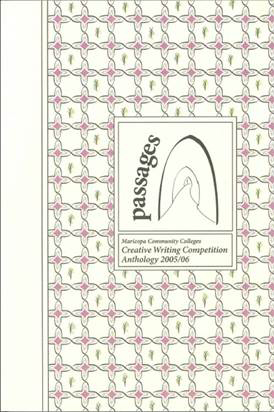
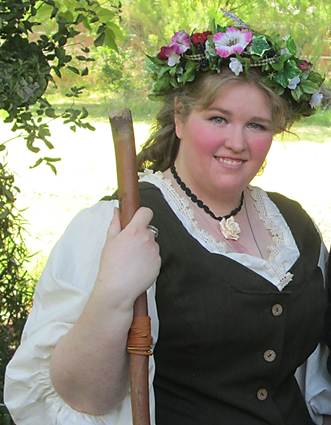


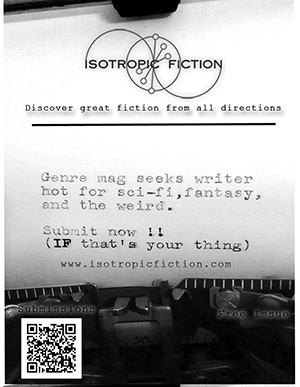 Let’s be frank. Writers are sympathetic characters, editors are not. Writers toil in romanticized isolation but get invited to the coolest parties. They create and share every moment of joy and sorrow experienced by not just one character, but by an entire world of their creation. They brainstorm and draft, rewrite and polish, and then one day they mass submit that perfect story to the editorial altars.
Let’s be frank. Writers are sympathetic characters, editors are not. Writers toil in romanticized isolation but get invited to the coolest parties. They create and share every moment of joy and sorrow experienced by not just one character, but by an entire world of their creation. They brainstorm and draft, rewrite and polish, and then one day they mass submit that perfect story to the editorial altars. As a writer, I’ve worked with a variety of editors, good and bad, from newspapers and books to literary and genre magazines. And as an editor, I’ve worked with sci-fi writers and romance novelists, journalists, and poets. There are countless essays about what editors are looking for, what their major peeves are, and how you can improve or kill your chances of getting published. Some of my favorite can be found right here on The Fictorians. After you’re done reading my essay, make it a point to check out Joshua Essoe’s “
As a writer, I’ve worked with a variety of editors, good and bad, from newspapers and books to literary and genre magazines. And as an editor, I’ve worked with sci-fi writers and romance novelists, journalists, and poets. There are countless essays about what editors are looking for, what their major peeves are, and how you can improve or kill your chances of getting published. Some of my favorite can be found right here on The Fictorians. After you’re done reading my essay, make it a point to check out Joshua Essoe’s “ If you’re a writer reading this, think about the last time you asked your friend, husband, wife, or dog to read the latest draft of your story. Did you notice how their eyes darted toward the door in a desperate attempt to escape? Did they sigh? Did they take your pages only to not have read them a month later? Did they say it was nice? Editors will never treat you like that. This bears repeating: editors want to read your work. You are their raison d’être.
If you’re a writer reading this, think about the last time you asked your friend, husband, wife, or dog to read the latest draft of your story. Did you notice how their eyes darted toward the door in a desperate attempt to escape? Did they sigh? Did they take your pages only to not have read them a month later? Did they say it was nice? Editors will never treat you like that. This bears repeating: editors want to read your work. You are their raison d’être.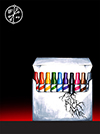 When a form letter goes out, the work that came in most likely was riddled with grammatical and spelling errors, displayed a total disregard of the publication’s submission guidelines, and/or wasn’t even a complete story. The form letter allows the editor to exemplify a level of professionalism with which the writer may not have treated his or her work.
When a form letter goes out, the work that came in most likely was riddled with grammatical and spelling errors, displayed a total disregard of the publication’s submission guidelines, and/or wasn’t even a complete story. The form letter allows the editor to exemplify a level of professionalism with which the writer may not have treated his or her work.